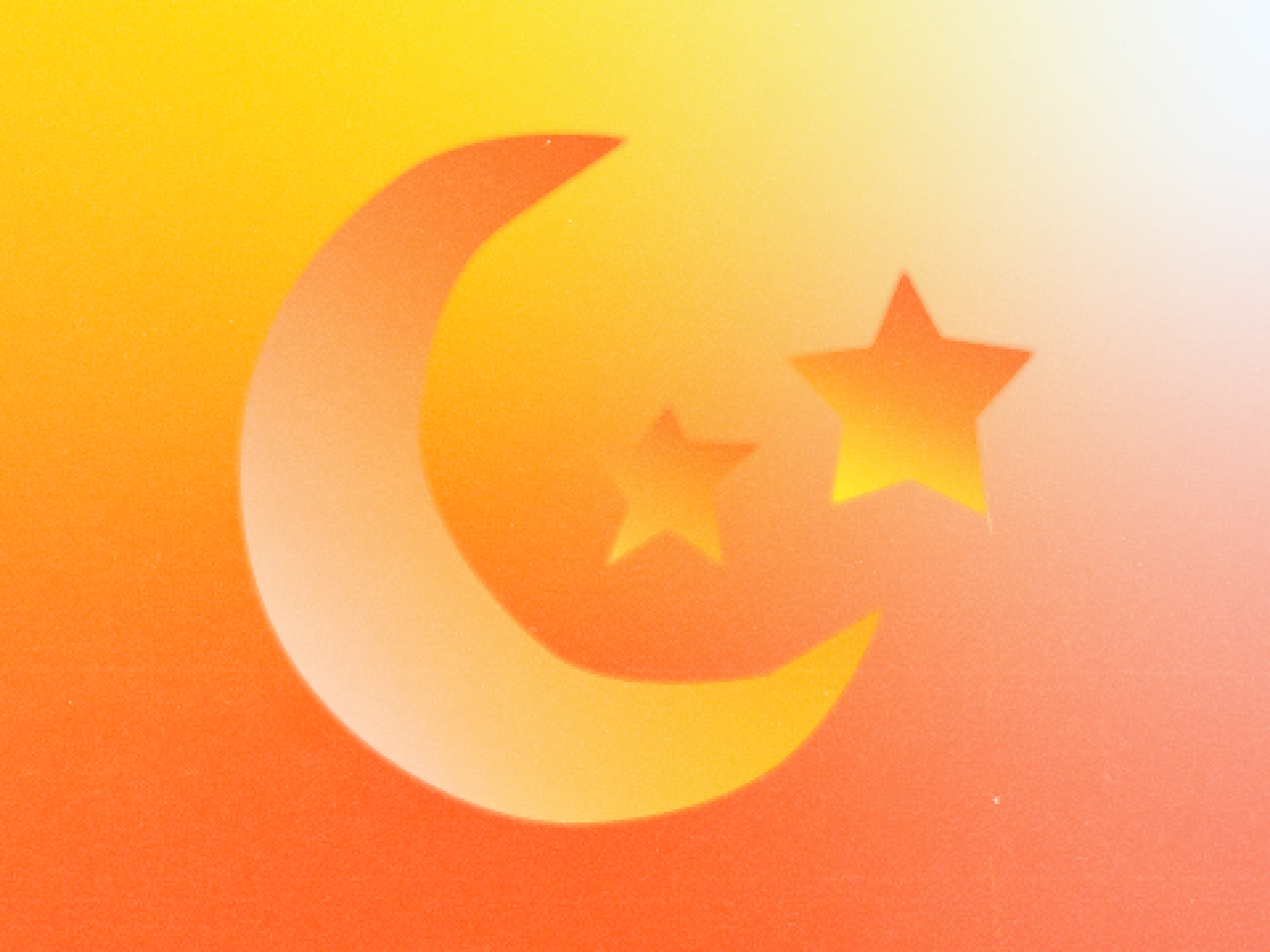Ramadan begins
Beginning at sundown today, Muslims spend Ramadan, the ninth month of the Islamic calendar, devoted to prayer, fasting, community and self-evaluation.

Beginning at sundown today, Muslims spend Ramadan, the ninth month of the Islamic calendar, devoted to prayer, fasting, community and self-evaluation.
Lauren Embling
Reviewer page idPronunciation: RAH-mah-dahn
Beginning at sundown today, Muslims spend Ramadan, the ninth month of the Islamic calendar, devoted to prayer, fasting, community and self-evaluation.
Origin
According to Muslim faith, during this month in A.D. 610, the angel Gabriel appeared to the prophet Muhammad (the founder of Islam) and revealed to him the beginnings of the Islamic holy book, the Qurʾān. This was Muhammad's first revelation.
When it is celebrated
The dates of Ramadan shift from year to year according to the Islamic lunar calendar, but it is generally 29-30 days long. The end of Ramadan is celebrated with a three-day festival known as Eid al-Fitr.
Traditions
Muslims fast during the month of Ramadan as a way to commemorate the revelation of the Qurʾān. Those who are healthy enough to do so fast during the day. Traditionally, observers will eat a pre-dawn breakfast, called suhoor, around 4:00 a.m. before the first prayer of the day, and an evening meal, iftar, after the sunset prayer around 7:30 p.m. People are also expected to refrain from drinking liquids, smoking, or engaging in sexual activity between sunrise and sunset.
About Muhammad
Muhammad (SAW), referred to the Prophet by Muslims, lived from 570-632 CE. According to Islamic tradition, as a boy Muhammad was recognized as a future prophet by a Christian monk. At age 40, the angel Gabriel appeared to Muhammad, and revealed to him verses of the Qurʾān, the sacred scripture of Islam. He continues to receive such revelations, and over time begins to preach what he has learned. He and his followers are not universally accepted, but eventually Muhammad experiences a miraculous night journey to Jerusalem to pray with Abraham and other prophets, before he ascends to heaven and receives the 5 daily prayers of Islam from God. Muhammad and his followers were met with resistance from other tribes and battled them for many years, until he returned to Mecca and took over in 630, giving amnesty to those who had previously opposed him. When he died, there was no plan for succession in place, which created confusion as to who would succeed him as leader of Islam.